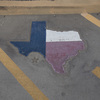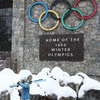
[ad_1]
The U.S. Department of the Interior introduced Thursday that it has given new names to 5 locations that beforehand included a racist time period for a Native American lady.
The renamed websites are in California, North Dakota, Tennessee and Texas, finishing a yearlong course of to remove the historically offensive word “squaw” from geographic names across the country.
“Words matter, particularly in our work to ensure our nation’s public lands and waters are accessible and welcoming to people of all backgrounds,” Interior Secretary Deb Haaland mentioned in a press release. She known as the phrase “harmful.”
Haaland, who took workplace in 2021, is the primary Native American to steer a Cabinet company.
In September, the Interior Department introduced its remaining vote on proposals to alter the names of practically 650 websites that contained the phrase. The company carried out a further assessment of seven places, all of which had been thought-about unincorporated populated locations. Five of these had been modified in Thursday’s announcement.
In western North Dakota, the brand new title Homesteaders Gap was chosen by members of a small neighborhood as a nod to their native historical past.
Mark Fox, tribal chairman of the Mandan, Hidatsa and Arikara Nation, welcomed the change, telling The Bismarck Tribune that the slur “really causes serious and strong emotions and resistance to that term.” In a press release to The Associated Press, he mentioned it was lengthy overdue, and “we are pleased that the racially insensitive and offensive name has been removed.”
But Joel Brown, a member of the McKenzie County Board of Commissioners, mentioned many residents within the space “felt very strongly” in opposition to the change.
Brown, who’s white, mentioned he and others favor as little interference from the federal authorities as potential as a result of “generally we find they’re disconnected from what the culture and economy are out here.”
Two different newly named locations are the California Central Valley communities of Loybas Hill, which interprets to “Young Lady,” proposed by the Paskenta Band of Nomlaki Indians; and Yokuts Valley.
The others are Partridgeberry, Tennessee, and Lynn Creek, Texas.
The determination has lengthy precedent. The Interior Department ordered the renaming of locations with derogatory phrases for Black and Japanese individuals in 1962 and 1974, respectively.
Last 12 months alone, authorities renamed 28 Wisconsin websites to take away a racist phrase, a panel advisable the title change of a Colorado mountain tied to a bloodbath, and the federal authorities renamed lots of of peaks, lakes, streams and different geographical options with racist and misogynistic phrases.
[adinserter block=”4″]
[ad_2]
Source link

